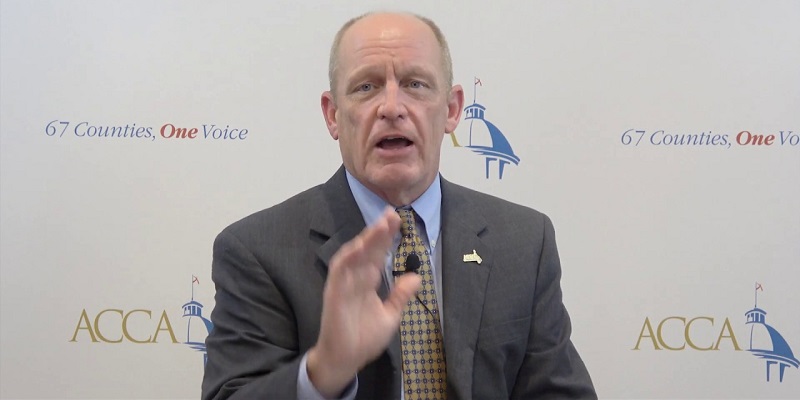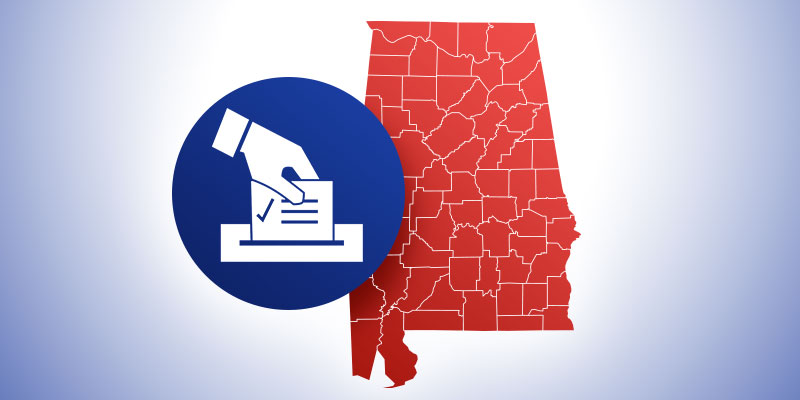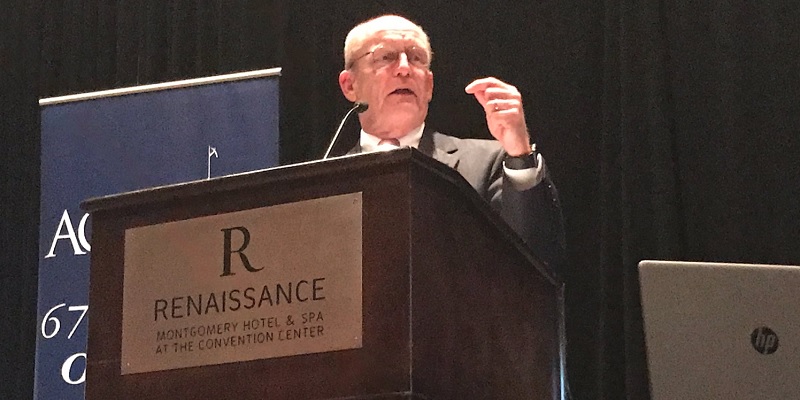One of the problems all of Alabama’s 67 counties have encountered with the COVID-19 outbreak is the housing of inmates at county jails that under normal circumstances would be in an Alabama Department of Corrections (ADOC) facility.
However, the pandemic has prevented the routine transfer of inmates to state facilities, leaving county governments with the burden of costs and resources to house those inmates at county jail facilities.
During an interview on Friday with “The Jeff Poor Show” on Mobile radio’s FM Talk 106.5, Association of County Commissions of Alabama executive director Sonny Brasfield urged ADOC to consider ways to increase the transfer of inmates from county jails to state facilities.
“The easy answer for me to say to you would be the Department of Corrections needs to remove its prisoners from county jails,” he said. “And certainly, if COVID-19 were not embracing all of us, impacting everything we do, that would be the message I would give to you this morning. We are doing our very, very best to be respectful of the challenge that the Department of Corrections faces, while at the same time recognizing that the Mobile County Jail is facing the exact same issues made worse in some percentage because the Department has essentially cut its intake of inmates by about 75%. A typical month — if we go back to last year this time, the Department would have been taking in between 900 and 1,000 inmates a month from the county jails.”
“Right now, they’re taking in about 240 inmates per month,” Brasfield continued. “We’ve got about 3,000 inmates in the county jails that should be in state custody, and that represents about 15% or so of the state’s total inmate population. We’re continuing to search for a solution. We want to continue to be a partner. But in the end, we think the Department needs to find some way to increase the intake inmates as we move forward through this process.”
As for the need for a special session to deal with the problem, Brasfield suggested the issue be resolved with the counties and the executive level of state government without the legislature’s involvement. However, Brasfield mentioned the need at some point for the legislature to deal with other matters, including liability legislation.
“[I]’m not sure that’s something the legislature wants to or needs to be getting on its work agenda,” Brasfield said. “That’s something the Department, the counties, and the administration need to work together to find a solution on. There are issues out there that I think everybody agrees need to be addressed. The question is just a question of timing for us. That’s just a little bit above my pay grade, and I’ll let the people who make those decisions make those, and we’ll react the best way we can. Certainly, the liability legislation is a piece that we would like to see passed as soon as possible — whatever the most realistic attitude and ability is for that.”
Brasfield acknowledged the problems encounter during the Mississippi special session earlier this year, noting the difficulties in handling the COVID-19 threat.
@Jeff_Poor is a graduate of Auburn University and the University of South Alabama, the editor of Breitbart TV, a columnist for Mobile’s Lagniappe Weekly and host of Mobile’s “The Jeff Poor Show” from 9 a.m.-12 p.m. on FM Talk 106.5











